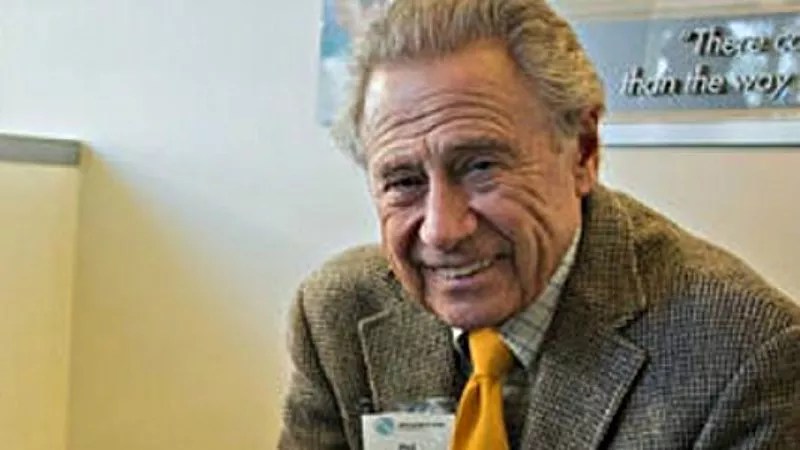
Free Lunch Photography

Audio By Carbonatix
After the Denver Post announced that it would be laying off thirty people, or around 30 percent of the newsroom staff, the Denver Newspaper Guild, which represents 25 of those getting pink slips, put out an open call for a wealthy benefactor to buy the publication from Alden Global Capital, the hedge fund that’s been stripping it down like a stolen car for years. Billionaire Phil Anschutz seems to fit this bill, and he has a notable interest in newspapers, having purchased the Colorado Springs Gazette in 2012.
But a story shared by Denver City Councilman Kevin Flynn suggests that Anschutz may prefer to let the Post die in order to replace it with a resurrected version of the Rocky Mountain News, which was shuttered in February 2009.
According to Flynn, Anschutz’s right-hand man, the late Jim Monaghan, told him his boss simply wouldn’t buy the Post because “he doesn’t want to inherit the contracts.” In other words, closing the Post would end the union contracts there, after which Anschutz could launch the Rocky as a non-union shop, like the Gazette.
This scenario isn’t new. After the Rocky‘s collapse, Anschutz purchased its name and website, which currently functions as a news aggregator, and in December 2014, his minions publicly announced that they were exploring the idea of relaunching the tabloid, complete with page prototypes.
Here’s an example:

A prototype for a Rocky Mountain News reboot floated in December 2014.
File photo
One former Rocky journalist who communicated at the time with Westword anonymously dismissed the idea that Anschutz would want to restart the newspaper war with the Post, especially given the economic factors that were battering print journalism back then (and continue to do so today). “Negotiating ploy,” the ex-staffer wrote. “Trying to drive down the price of the Post. He owns the Gazette, so he wants into the Denver market.” The source added: “Talk that he would … buy the Post and shut it down and resurrect the Rocky with a Gazette-leaning editorial stance.”
More than three years later, Flynn’s frustration over job cuts at the Post led him to take an unexpected position on a $9.6 million, ten-year agreement to rent office space in the 101 West Colfax building where the paper’s newsroom was based until earlier in 2018. Most of the journalists are now working out of the same Adams County facility where the Post‘s printing plant is located.
On March 19, Denver City Council was scheduled to vote on the pact, and Flynn admits that “the terms of the lease are better than the last sublease we did with the Denver Post. The last one we did was too high by square foot, and I thought we were paying too much. But this one looks more in line with the market, and we really need the space downtown.”
Still, Flynn goes on, “when I reviewed the agenda after the news about the layoffs, the optics of them laying off nearly a third of their staff and then the city giving them $10 million was too hard for me. So I called Tony Mulligan [at the Denver Newspaper Guild] and Kieran Nicholson [a Post reporter who serves as a guild officer] to make sure I wouldn’t be doing anything more harmful – that it wouldn’t lead to more layoffs or put anyone else at risk. And when they said the money would be sent out of the city and wouldn’t save any jobs, I knew in my heart and in my gut that I couldn’t vote yes.”

Before he was a Denver City Councilman, Kevin Flynn worked as a journalist for the Rocky Mountain News.
Four other council members joined Flynn in voting against the contract, but it still passed 7-5. And while Flynn understands why the majority of his colleagues approved, he’d feel better if the money were going to someone who was doing everything possible to help the Post survive – which brings up the Anschutz anecdote.
“When the Rocky closed, among the folks I talked to about what my future was in town, since it obviously wasn’t going to be in journalism if I was staying, was Jim Monaghan,” he recalls. “I’d known Jim for years, and he told me the story – that Anschutz had bought up the rights to the Rocky Mountain News nameplate and the website, but his intent was that when the Post hit bottom, he would buy it up and then get rid of it. In other words, he would get rid of the Denver Post and use the furniture, fixtures and equipment to resurrect the Rocky Mountain News as a product.”
Approximately four years later, a few months prior to Monaghan’s May 2013 death, Flynn ran into him at the Denver Press Club’s annual Damon Runyan dinner, “and I said, ‘Jim, is Phil still planning to do that?’ And Jim said, ‘Oh yeah. Just keep watching.'”
Flynn stresses that “I don’t know if Phil is still planning to do that now. I just know that’s what Monaghan told me before he passed away.” But from a financial standpoint, the only thing that’s changed since then is that the Post has gotten closer to hitting that bottom.